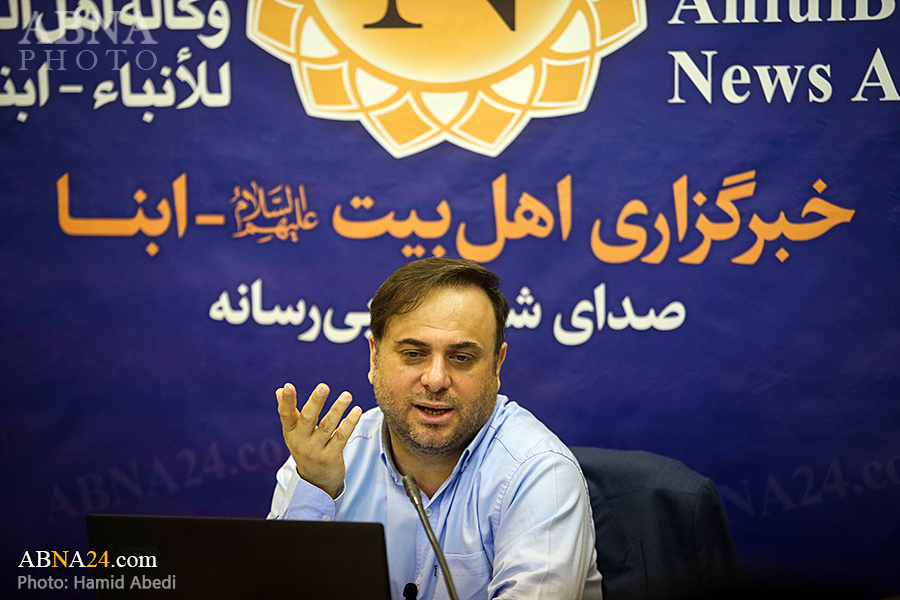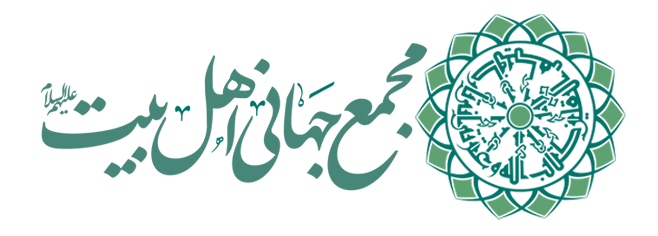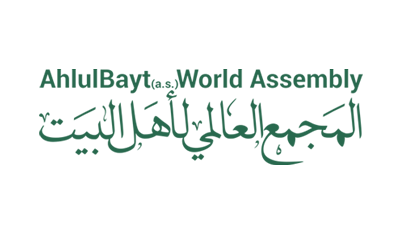Turkish Shiites are not very active in social issues/ there is no restriction on Shiites from the government: Madani
Regarding the role of Shiites in political and social affairs, the expert on Turkish issues stated, “There are no restrictions on the Shiites from the Turkish government, and they are active. But they neither have much contact with the outside their circle nor are they very active in social affairs. Shiites in Turkey do not have a political party, and they keep themselves on the margins of society, in other words, they are cautious.”
ABWA Official Website – On Monday, May 8, 2023, a specialized session on “The role of Shiites in the cultural and social developments of Turkey, and the upcoming elections” was held at the AhlulBayt (a.s.) World Assembly with the presence of Dr. Mohammad Hadi Madani, an expert on Turkish issues.
In this session, Dr. Madani stated, “46 parties will participate in the upcoming Turkish elections. For this election, 4 coalitions have been formed, of which 2 important coalitions, namely the “Jomhur” (Republic) and the “Mellat” (Nation) coalitions, are competing.”

Regarding the importance of Turkish elections, he said, “The result of this event is very important for Turkey. In this election, two important and competing discourses are confronting, which have strong criticisms towards each other. The “Jomhur” (Republic) coalition with the slogan “development and independence” and the “Mellat” (Nation) coalition with the promise of “freedom, democracy, and human rights” have appeared in this field.
“Today’s atmosphere in Turkey is very different from before. Because previously there were two discourses of Islamism and secularism in the country. But today, there are two new discourses with different approaches which have passed the past debates. Islamists in Turkey are worried that if Erdoğan’s rival comes to power they will lose the things they achieved during the 20 years of the current president’s rule, such as the presence of religious people in society, including the universities, or the hijab, and they have concerns about these issues,” continued the expert on Turkey.
“The upcoming election in Turkey is a confrontation scene of Russia and the West. Russia supports Erdogan’s presence on the scene of power. Because Erdogan still maintains his relations with Russia as before the Ukrainian war and at the same time cooperates with Ukraine. While the West’s expectation from Turkey was opposition to Putin, which is not implemented. In addition to disrupting NATO affairs, Erdogan is against the US presence in northern Syria and the US support of the Kurds. On the other hand, Erdogan has relations with Putin and bought the s400 air defense system from Russia. All these factors make the West support the coalition anti-Erdogan, that is, the “nation”,” he said.
Pointing out the Kurds’ opposition to Erdogan, the Turkish affairs expert continued, “The most important groups of Turkey, i.e., conservatives, religious, Islamists and nationalists who have a religious orientation, are against the liberal, socialists, nationalists critical of the government, and Kemalists who follow the thoughts of the Atatürk.”
About the polls on the Turkish elections, Dr. Madani said, “Over the past month, various companies have conducted public surveys, the results of which show that the competition between Erdogan and Kılıçdaroğlu is close, with a few percent difference. Of course, the accuracy of these polls is debatable. Because some of these companies cooperate with a particular party, or the results of some polls presented to politicians are different from the results announced to the public.”
Regarding the West’s attempt to interfere in the Turkish elections, he said, “In political think tanks, we see many attempts to sideline the elections by disrupting and creating discords in Turkish society. For example, they raise the issue of Erdogan’s fraud or failure in his campaign, or they publicly support Kılıçdaroğlu.”
In describing the different periods in Erdogan’s foreign policy, the expert on Turkish affairs stated, Before the failed coup of 2016, Erdogan had different approaches, including the policy of zero tension with neighbors, and accompanying the West and neighbors. With the beginning of the Arab Spring, he adopted the new Ottomanism and supported the Muslim Brotherhood. But after the failed coup, Erdogan tried to adopt realistic and nationalist policies, and he is currently rebuilding Turkey’s relationship with Arab countries so that can access the resources of the Mediterranean, and in other words, he has abandoned his Muslim Brotherhood approach.”
Discussing Turkey’s policies towards Iran, Madani explained, “From the past to the present day, Iran and Turkey are competing due to their geopolitical position and cultural and historical issues, and it will continue in the future. But the decisive factor in this competition is Turkey’s relationship with the West and Israel, which Kılıçdaroğlu is trying to make up. In the Caucasus, Iraq, and Syria, Iran and Turkey have serious competition and are negotiating about it, which has sometimes led to military conflicts in Iraq and Syria. But Erdogan’s policy is based on the principle of continuation and increase of economic partnerships and controlled competition.”
“While Turkey is facing major problems, Kılıçdaroğlu is seeking to restore the country’s relations with the West and the United States. The US support for anti-Turkey Kurds and the deployment of S400 air defense systems in the country are among these problems. On the one hand, one of the important sources of Turkey’s income is Russian tourists, and Russia is the main supplier of Turkey’s natural gas. On the other hand, Westerners have opposed the country’s membership in the European Union, despite the full fulfillment of Turkey to its commitments, including cooperation with NATO member countries,” he said on the policies of Erdogan’s rival.
“Erdogan does not give room to parties to operate, and the function of the “Republic” coalition is only in the presidential and parliamentary elections, nothing more. But the rival intends to give the parties a chance to operate and give them power,” said the expert on Turkish affairs.
“Even though Erdogan’s face is being tarnished by his opponents these days, he has 20 years of political experience, and on the other hand, his rivals do not have much experience,” he continued.
In response to a question about Turkish Alevis, Madani said, “Despite Kılıçdaroğlu’s declaration that he is Alevi, this group is not independent and does not have a distinguished party. From the past, Alevis have been supporters of the People’s Republic Party and Atatürk’s thinking, and they tend to be secular and are serious opponents of Erdogan.”
Regarding the role of Shiites in the political and social fields of Turkey, he said, “There are no restrictions on the Shiites from the Turkish government, and they are active. But they neither have much contact with the outside their circle nor are they very active in social affairs. Shiites in Turkey do not have a political party, and they keep themselves on the margins of society, in other words, they are cautious so that if they enter the political arena and the other side wins, their achievements are not lost, and their activities are not limited. Shiites of Turkey still do not have the self-confidence to speak independently and introduce their elites to the society.”
“Adopting a suitable strategy by Shiite activists and communities, and their more effective presence in the cultural and social developments of Turkish society is a necessity that is felt more than ever,” he said in the end.
/345/
Regarding the role of Shiites in political and social affairs, the expert on Turkish issues stated, “There are no restrictions on the Shiites from the Turkish government, and they are active. But they neither have much contact with the outside their circle nor are they very active in social affairs. Shiites in Turkey do not have a political party, and they keep themselves on the margins of society, in other words, they are cautious.”
ABWA Official Website – On Monday, May 8, 2023, a specialized session on “The role of Shiites in the cultural and social developments of Turkey, and the upcoming elections” was held at the AhlulBayt (a.s.) World Assembly with the presence of Dr. Mohammad Hadi Madani, an expert on Turkish issues.
In this session, Dr. Madani stated, “46 parties will participate in the upcoming Turkish elections. For this election, 4 coalitions have been formed, of which 2 important coalitions, namely the “Jomhur” (Republic) and the “Mellat” (Nation) coalitions, are competing.”

Regarding the importance of Turkish elections, he said, “The result of this event is very important for Turkey. In this election, two important and competing discourses are confronting, which have strong criticisms towards each other. The “Jomhur” (Republic) coalition with the slogan “development and independence” and the “Mellat” (Nation) coalition with the promise of “freedom, democracy, and human rights” have appeared in this field.
“Today’s atmosphere in Turkey is very different from before. Because previously there were two discourses of Islamism and secularism in the country. But today, there are two new discourses with different approaches which have passed the past debates. Islamists in Turkey are worried that if Erdoğan’s rival comes to power they will lose the things they achieved during the 20 years of the current president’s rule, such as the presence of religious people in society, including the universities, or the hijab, and they have concerns about these issues,” continued the expert on Turkey.
“The upcoming election in Turkey is a confrontation scene of Russia and the West. Russia supports Erdogan’s presence on the scene of power. Because Erdogan still maintains his relations with Russia as before the Ukrainian war and at the same time cooperates with Ukraine. While the West’s expectation from Turkey was opposition to Putin, which is not implemented. In addition to disrupting NATO affairs, Erdogan is against the US presence in northern Syria and the US support of the Kurds. On the other hand, Erdogan has relations with Putin and bought the s400 air defense system from Russia. All these factors make the West support the coalition anti-Erdogan, that is, the “nation”,” he said.
Pointing out the Kurds’ opposition to Erdogan, the Turkish affairs expert continued, “The most important groups of Turkey, i.e., conservatives, religious, Islamists and nationalists who have a religious orientation, are against the liberal, socialists, nationalists critical of the government, and Kemalists who follow the thoughts of the Atatürk.”
About the polls on the Turkish elections, Dr. Madani said, “Over the past month, various companies have conducted public surveys, the results of which show that the competition between Erdogan and Kılıçdaroğlu is close, with a few percent difference. Of course, the accuracy of these polls is debatable. Because some of these companies cooperate with a particular party, or the results of some polls presented to politicians are different from the results announced to the public.”
Regarding the West’s attempt to interfere in the Turkish elections, he said, “In political think tanks, we see many attempts to sideline the elections by disrupting and creating discords in Turkish society. For example, they raise the issue of Erdogan’s fraud or failure in his campaign, or they publicly support Kılıçdaroğlu.”
In describing the different periods in Erdogan’s foreign policy, the expert on Turkish affairs stated, Before the failed coup of 2016, Erdogan had different approaches, including the policy of zero tension with neighbors, and accompanying the West and neighbors. With the beginning of the Arab Spring, he adopted the new Ottomanism and supported the Muslim Brotherhood. But after the failed coup, Erdogan tried to adopt realistic and nationalist policies, and he is currently rebuilding Turkey’s relationship with Arab countries so that can access the resources of the Mediterranean, and in other words, he has abandoned his Muslim Brotherhood approach.”
Discussing Turkey’s policies towards Iran, Madani explained, “From the past to the present day, Iran and Turkey are competing due to their geopolitical position and cultural and historical issues, and it will continue in the future. But the decisive factor in this competition is Turkey’s relationship with the West and Israel, which Kılıçdaroğlu is trying to make up. In the Caucasus, Iraq, and Syria, Iran and Turkey have serious competition and are negotiating about it, which has sometimes led to military conflicts in Iraq and Syria. But Erdogan’s policy is based on the principle of continuation and increase of economic partnerships and controlled competition.”
“While Turkey is facing major problems, Kılıçdaroğlu is seeking to restore the country’s relations with the West and the United States. The US support for anti-Turkey Kurds and the deployment of S400 air defense systems in the country are among these problems. On the one hand, one of the important sources of Turkey’s income is Russian tourists, and Russia is the main supplier of Turkey’s natural gas. On the other hand, Westerners have opposed the country’s membership in the European Union, despite the full fulfillment of Turkey to its commitments, including cooperation with NATO member countries,” he said on the policies of Erdogan’s rival.
“Erdogan does not give room to parties to operate, and the function of the “Republic” coalition is only in the presidential and parliamentary elections, nothing more. But the rival intends to give the parties a chance to operate and give them power,” said the expert on Turkish affairs.
“Even though Erdogan’s face is being tarnished by his opponents these days, he has 20 years of political experience, and on the other hand, his rivals do not have much experience,” he continued.
In response to a question about Turkish Alevis, Madani said, “Despite Kılıçdaroğlu’s declaration that he is Alevi, this group is not independent and does not have a distinguished party. From the past, Alevis have been supporters of the People’s Republic Party and Atatürk’s thinking, and they tend to be secular and are serious opponents of Erdogan.”
Regarding the role of Shiites in the political and social fields of Turkey, he said, “There are no restrictions on the Shiites from the Turkish government, and they are active. But they neither have much contact with the outside their circle nor are they very active in social affairs. Shiites in Turkey do not have a political party, and they keep themselves on the margins of society, in other words, they are cautious so that if they enter the political arena and the other side wins, their achievements are not lost, and their activities are not limited. Shiites of Turkey still do not have the self-confidence to speak independently and introduce their elites to the society.”
“Adopting a suitable strategy by Shiite activists and communities, and their more effective presence in the cultural and social developments of Turkish society is a necessity that is felt more than ever,” he said in the end.
/345/





